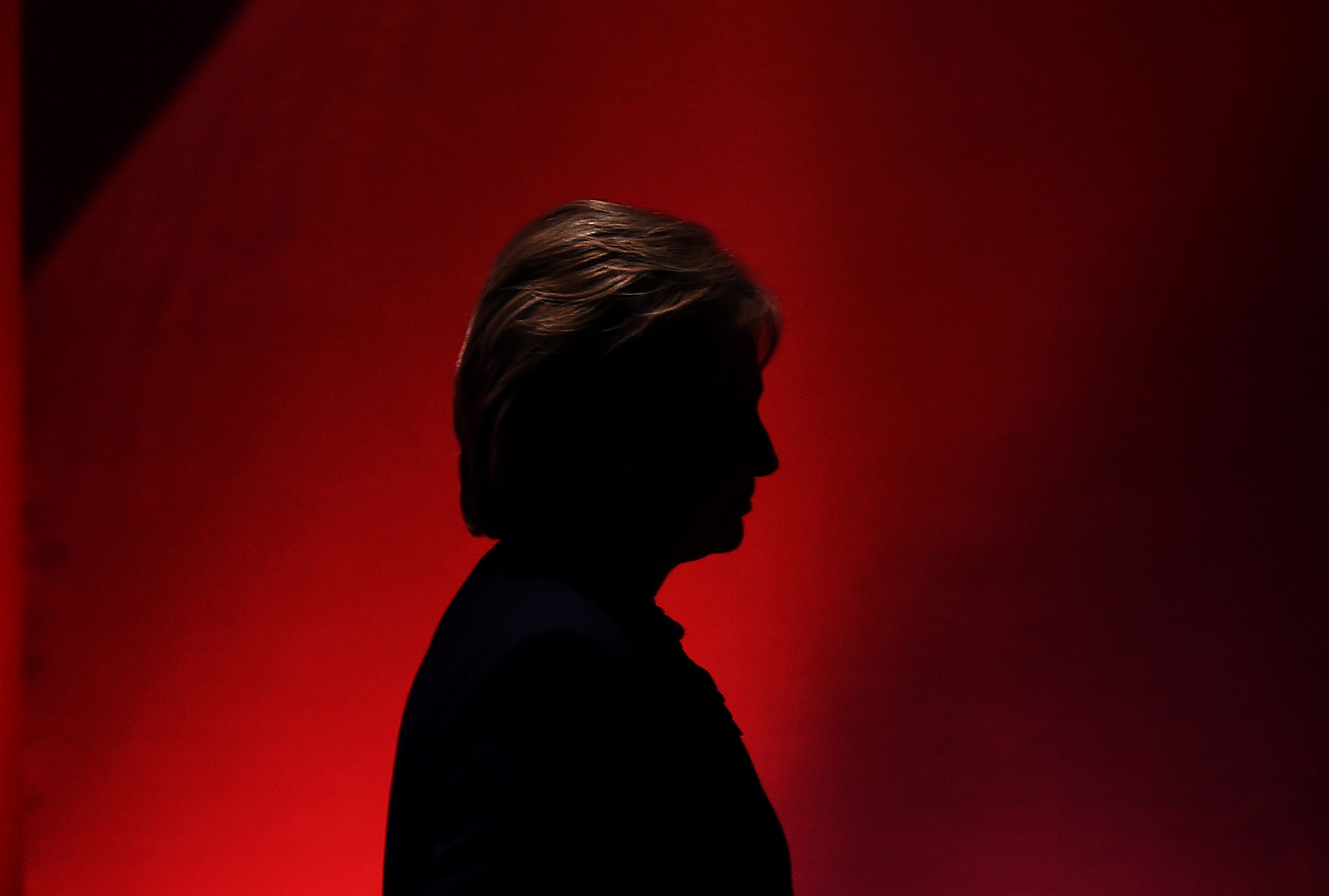Why did Hillary Clinton lose?
One thing is for sure: Cosmopolitan finance capitalism is out.


Donald Trump's victory over Hillary Clinton will probably be considered the second-greatest upset in American presidential politics, after Harry Truman's come-from-behind victory in 1948. It raises one big question: Why did Clinton lose?
Trump is a literally unprecedented candidate in American history: He is the first American president to be elected with no military or political experience of any kind. During his campaign, he made multiple gaffes and insulted about every ethnic group in the country aside from white people. Twelve women came out to accuse him of sexual assault. On paper, Trump would seem to be the easiest opponent to beat imaginable, and yet, he won.
Democrats have already started arguing bitterly about who is to blame for the loss. As unpleasant as it is, there's no getting around this. In order to understand what to do next, the left must understand and process why they failed to win.
The Week
Escape your echo chamber. Get the facts behind the news, plus analysis from multiple perspectives.

Sign up for The Week's Free Newsletters
From our morning news briefing to a weekly Good News Newsletter, get the best of The Week delivered directly to your inbox.
From our morning news briefing to a weekly Good News Newsletter, get the best of The Week delivered directly to your inbox.
At this early stage, I see four major factors that may have led to Clinton's loss. First is her extraordinary weakness as a candidate. It simply can't be a coincidence that, during the primaries, she barely managed to put away Bernie Sanders, despite having the greatest head start of any candidate in primary history in terms of endorsements and elite support. Like Al Gore, Clinton is a wooden campaigner with a tendency to put policy minutiae ahead of an actual policy vision. Along with the Democratic establishment, it was her job to win, and they both blew it.
Some of Clinton's struggles, to be fair, must be placed at the feet of the media's absolutely deranged treatment of her. Centrist journalists responded to a minor breach of email protocol like it was Watergate squared, while largely ignoring Trump's dozens of other — far more serious — ethical and legal breaches. But on the other hand, at some point one must concede the reality that no amount of scolding was going to change that relationship. The Clintons have been feuding with the media for 30 years — and their lawyerly and secretive approach to controversy tends to inflame things.
Second, there are the hackers, apparently affiliated with the Russian government, who got into the emails of the Democratic National Committee and Clinton campaign chair John Podesta and dribbled the contents out in a fashion calculated to do maximum harm to Clinton's campaign. It was one of the greatest acts of political sabotage in American history, and it did a significant amount of damage.
Third is Trump's appeal to bigotry. His signature plan is a campaign of quasi-ethnic cleansing, coupled with a wall to keep out brown people. He wants to ban Muslims from entering the country. Many of his supporters are white nationalists or out-and-out Nazis. It turns out the most rancid of white identity politics play disturbingly well in this country.
A free daily email with the biggest news stories of the day – and the best features from TheWeek.com
But finally, take a look at the political map. Trump's victory was in the Rust Belt states, which used to be the greatest industrial center in the world, but have since been cored out by deindustrialization. President Obama, in the context of running against a Wall Street plutocrat, did rather well in these places.
Many liberal Clinton supporters have been loudly insisting that one possible explanation for this shift is bigotry, because Romney was not a stone cold racist. That is surely part of the explanation, particularly when it comes to gender. But bigotry cannot be the only thing to blame. President Obama is a black man and he won Wisconsin, Ohio, Pennsylvania, and Michigan twice, which he could not have done without reasonable support from downscale whites. What's more, exit polls show Trump besting Romney's margins among every ethnic minority, even Latinos, and white women as well.
I submit that a large part of the reason Clinton lost these states is because her complicated, cautious economic agenda and, more importantly, her overall political persona as a status-quo politician who takes tons of money from Wall Street, were both deeply unappealing to the downscale white voters who hold the balance of power in these states.
In the future, Democratic Party politicians will have to find some way to cater to these white voters without turning off their black and brown base. Bernie Sanders, with his combination of universal programs, ethnic pluralism, and hard-nosed anti-rich stance, provides one alternative route.
But one thing is for sure: The cosmopolitan capitalist and Wall Street-friendly liberalism that has dominated elite Democratic circles for decades could not possibly be more dead. All that is left now is to determine what will replace it.
Ryan Cooper is a national correspondent at TheWeek.com. His work has appeared in the Washington Monthly, The New Republic, and the Washington Post.
-
 How the ‘British FBI’ will work
How the ‘British FBI’ will workThe Explainer New National Police Service to focus on fighting terrorism, fraud and organised crime, freeing up local forces to tackle everyday offences
-
 The best family hotels in Europe
The best family hotels in EuropeThe Week Recommends Top kid-friendly hotels with clubs, crèches and fun activities for children of all ages – and some downtime for the grown-ups
-
 Moon dust has earthly elements thanks to a magnetic bridge
Moon dust has earthly elements thanks to a magnetic bridgeUnder the radar The substances could help supply a lunar base
-
 The billionaires’ wealth tax: a catastrophe for California?
The billionaires’ wealth tax: a catastrophe for California?Talking Point Peter Thiel and Larry Page preparing to change state residency
-
 Bari Weiss’ ‘60 Minutes’ scandal is about more than one report
Bari Weiss’ ‘60 Minutes’ scandal is about more than one reportIN THE SPOTLIGHT By blocking an approved segment on a controversial prison holding US deportees in El Salvador, the editor-in-chief of CBS News has become the main story
-
 Has Zohran Mamdani shown the Democrats how to win again?
Has Zohran Mamdani shown the Democrats how to win again?Today’s Big Question New York City mayoral election touted as victory for left-wing populists but moderate centrist wins elsewhere present more complex path for Democratic Party
-
 Millions turn out for anti-Trump ‘No Kings’ rallies
Millions turn out for anti-Trump ‘No Kings’ ralliesSpeed Read An estimated 7 million people participated, 2 million more than at the first ‘No Kings’ protest in June
-
 Ghislaine Maxwell: angling for a Trump pardon
Ghislaine Maxwell: angling for a Trump pardonTalking Point Convicted sex trafficker's testimony could shed new light on president's links to Jeffrey Epstein
-
 The last words and final moments of 40 presidents
The last words and final moments of 40 presidentsThe Explainer Some are eloquent quotes worthy of the holders of the highest office in the nation, and others... aren't
-
 The JFK files: the truth at last?
The JFK files: the truth at last?In The Spotlight More than 64,000 previously classified documents relating the 1963 assassination of John F. Kennedy have been released by the Trump administration
-
 'Seriously, not literally': how should the world take Donald Trump?
'Seriously, not literally': how should the world take Donald Trump?Today's big question White House rhetoric and reality look likely to become increasingly blurred
